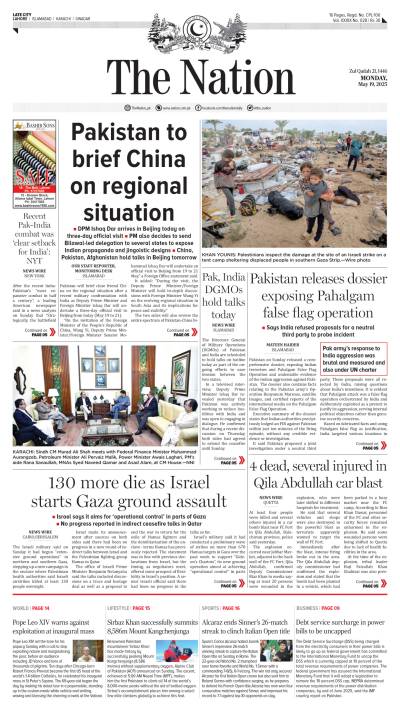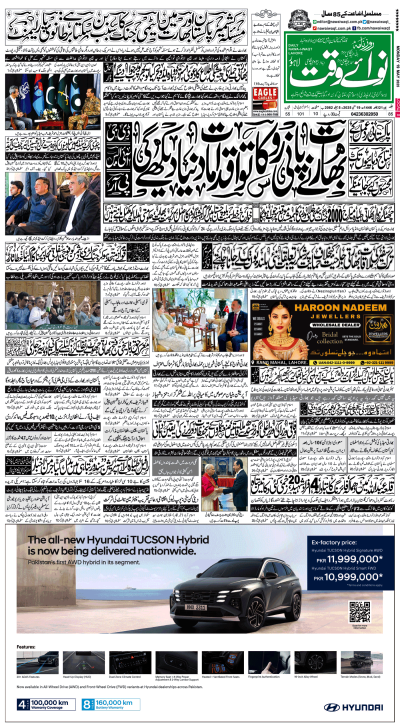LAHORE - In partnership with the Higher Education Commission (HEC) of Pakistan, UNESCO organized a capacity-building workshop aimed at equipping academics with the expertise to design a Media and Information Literacy (MIL) course for BS Media and Communication Studies. The workshop was facilitated by the Department of Digital Media, University of the Punjab, and coordinated by Media Foundation 360. Hamza Swati, National Program Communication Officer at UNESCO, briefed participants on the significance of integrating MIL into the curriculum, emphasizing its role in equipping students with essential skills to navigate today’s complex media landscape. The workshop featured expert insights from Hadyat Ullah Kasi, Deputy Director (Academics) HEC; Dr. Mehwish Raza, Deputy Head, Centre for Learning & Teaching, Forman Christian College University; and Prof. Dr. Savera Shami, Chairperson, Department of Digital Media, University of the Punjab. Dr. Shami, who also serves as the Research Lead for UNESCO’s MIL Framework Project in Pakistan, shared valuable research findings and key insights from the draft strategy. The participants stated that the rapid spread of misinformation and disinformation poses a significant challenge in the present day world impacting individuals, communities, and societies. This workshop was part of a series of consultative sessions aimed at gathering recommendations from critical stakeholders, contributing to the development of a comprehensive and impactful MIL framework. The workshop brought together over 20 faculty members, including Heads of Departments, Associate Professors, Assistant Professors, and Lecturers from leading universities across Punjab. These experts collaborated to develop a UNESCO MIL-based curriculum outline, ensuring that students gain critical thinking skills, informed digital citizenship, and responsible media engagement to tackle the challenges posed by misinformation and evolving digital threats. A key outcome of the workshop was the development of a comprehensive curriculum template for Media and Information Literacy (MIL). This curriculum, based on the UNESCO Media and Information Literacy Curriculum for Teachers’ Guidebook, has been adapted to the local educational and socio-cultural context. Once implemented, this framework will serve as a foundation for integrating MIL into academic programs nationwide, fostering a generation of media-literate, critically aware, and digitally responsible citizens in Pakistan.
Tuesday, May 20, 2025
Unesco, HEC collaborate to strengthen media and information literacy in Pakistan
Dar in China as Pakistan intensifies diplomatic push against India’s narrative
5:37 PM | May 19, 2025
Peace advocate urges renewed global engagement on Kashmir conflict
4:57 PM | May 19, 2025
'India is not US, Pakistan is not Afghanistan': ISPR delivers stern warning to India
4:32 PM | May 19, 2025
-
Lahore emerges among safest global cities in Numbeo 2025 index
-
Lahore emerges among safest global cities in Numbeo 2025 index
-
India’s suspension of Indus Water Treaty legally baseless
-
Seventh polio case reported in Pakistan amid nationwide vaccination drive
-
Pakistan reports sixth polio case of 2025
-
PTA begins issuing VPN licences to regulate usage
Regional Reset
May 19, 2025
Peak Potential
May 19, 2025
United Front
May 19, 2025
Culture Shift
May 18, 2025
Tactical Shift
May 18, 2025
Pakistan’s Strategic Edge
May 19, 2025
Lessons for India
May 19, 2025
Galiyat’s Poor Network Services
May 19, 2025
A City in Neglect
May 19, 2025
Rising Cost of Living
May 19, 2025
ePaper - Nawaiwaqt
Nawaiwaqt Group | Copyright © 2025





